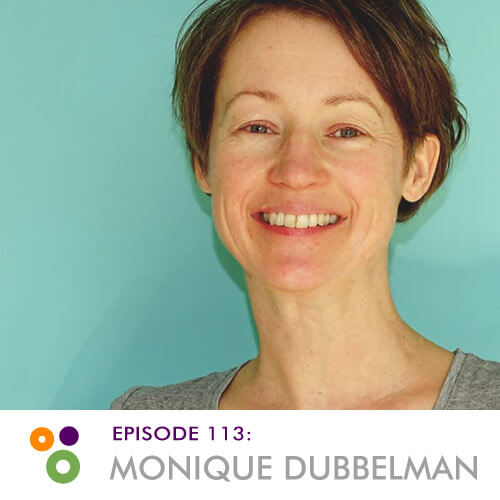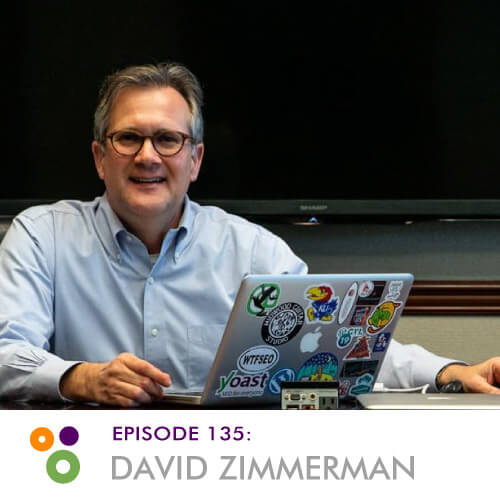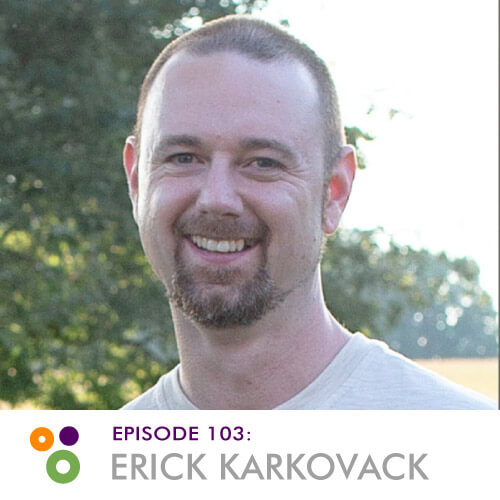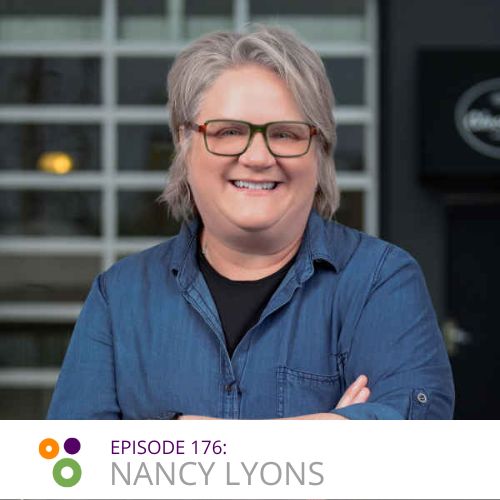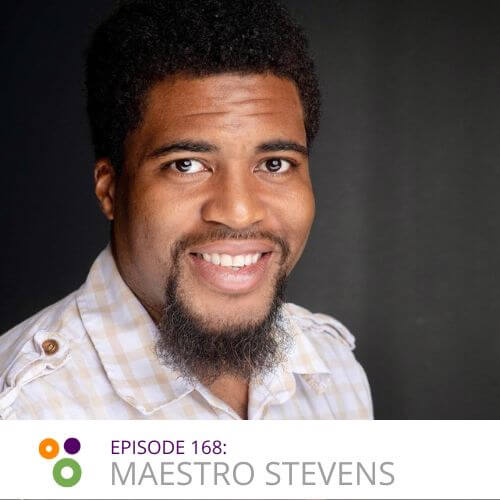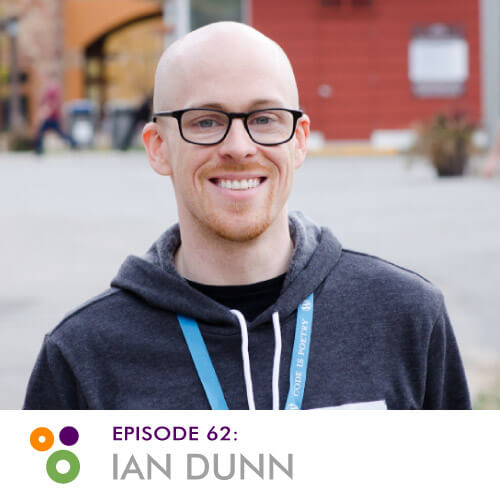Episode 91: Sara Cope

Podcast: Play in new window | Download
Subscribe: RSS
Introducing Sara Cope
Sara is a software engineer working remotely for the US Federal Government. She’s passionate about education and diversity in tech and loves helping others level up their skills.
Show Notes
Twitter | @sarassassin
Website | sara.io
Episode Transcript
Tara: This is Hallway Chats, where we meet people who use WordPress.
Liam: We ask questions, and our guests share their stories, ideas and perspectives.
Tara: And now the conversation begins. This is episode 91.
Liam: Welcome to Hallway Chats. I’m Liam Dempsey.
Tara: And I’m Tara Claeys. Today, we’re joined by Sara Cope. Sara is a software engineer working remotely for the US Federal Government. She’s passionate about education and diversity in tech and loves helping others level up their skills. Outside of work, she enjoys collecting toys and adventuring with her family. Welcome, Sara.
Sara: Hi. Thanks for having me.
Liam: You’re most welcome. Thanks for joining us. Can you tell us a little bit more about yourself?
Sara: Yeah, I am a woman in tech for the past 17 years surprisingly. My background with that is in software development and project management. And then outside of my full-time job, I also do some mentoring and teaching at an education boot camp. And then my home life, I have two sons and a pug named Bowie.
Tara: And your two sons, how old are they?
Sara: Ben is 12 and Nick is 18.
Tara: And are they involved in tech?
Sara: Well, Ben for sure is. He is more of a systems nerd. He built his own computer, I think he was 10 or 11 when he built his first computer. He loves networking and all sorts of things. Nick is not into tech as much. He actually wants to be an epidemiologist.
Tara: That’s interesting that your older son took apart a computer. We recently spoke to somebody who works in education. We were discussing the fact that it seems like the current generation of students is less inclined to actually dig in and take things apart because everything is so app-driven and not as much hardware. Is he involved in something in school that does that or have you led him down that path? Where does that curiosity come from?
Sara: Well, it’s actually my younger son. My 12-year-old.
Tara: Oh, sorry. Okay.
Sara: And he is on a RobotX team in a local community. It’s not affiliated with his school but it’s a community team, which he’s been doing for four years and it’s called First LEGO League. That probably I’m sure has had some influence and we also, I always have old computers and old electronics that I keep on hand so he’s always kind of having sitting around to tinker with. I think that’s helped him get interested, too.
Tara: Interesting. How did you get involved in tech? Tell us a little bit about your background?
Sara: Well, when I was young, my dad had a lot of computers that were sitting around that I wanted to tinker with. He would get computers and computer parts and go and sell them at local conventions or the Hamventions is what we have here in Dayton, Ohio for Ham radio operators. So we always had these computer things laying around, and I just wanted to play games on them. With my siblings, we would try and see which computer worked and would run the games that we wanted to play. And then eventually after Windows came out, I got more interested in computers and actually creating things on computers. And I would make little movies and animations and thought that was really cool. And then in junior high, I had the opportunity to take a programming class. And I just knew right away that I want to do something with computers.
Liam: That’s really interesting, the progression there. And you mention that you professionally are into software development. Talk to us a little bit about what kind of software you develop and both maybe now for the government and anything else that you’ve done in the past?
Sara: For the government– I’m a front-end engineer and right now, I work on Code.gov which is our federal open-source inventory for all of federal government. We’re really trying to get more open-source code available throughout the government. That is primarily what I work on. And I also have other projects. My other main project is the US Web Design System, which is our design system for federal government.
Tara: How does that work in terms of transitioning between administrations? How long have you worked there or have you been there? Longer than this administration? Have you seen things change?
Sara: Yeah, when I was at my previous agency, I was actually a project manager for web applications development. And I decided I wanted to go back into writing code full time. It was more kind of my side thing back then. So I went to this platform called Open Opportunities. It’s where federal employees can go look for little volunteer gigs basically. Through that, I found one of these gigs that was developing a site for the White House. And that was in 2014 or 2015, I think in the Obama Administration. And that actually was a WordPress site so that kind of is what started the ball rolling for me, as far as transitioning into front-end full time and starting to work on projects for the White House.
Liam: Yeah, that must be really challenging with the White House responding to everything in the world in real time and, “We’re changing this. We’re changing that.” Was that first website then? Was that your introduction to WordPress in a formal way or have you been working with it beforehand?
Sara: That was the first time, I think I had worked with WordPress through my full-time job. My initial introduction to WordPress was way long time ago, probably in I think around 2008 when I was like, “Oh, what’s this cool blogging thing? Let’s check it out. So I put up a WordPress.com site and I was like, “This is great. I want to be able to tinker.” Then I went to .org self-host it and I was like, “This is great.” I really don’t like blogging but I like tinkering with WordPress. So I started freelancing and did that for a few years which was a lot of fun. And then after that, I moved on to work on my friend’s WordPress website CSS-Tricks, which on there was more like, I wasn’t doing a lot of WordPress stuff. IT was more blog, admin, and operations type things. So I did that for six years. I’ve kind of been exposed to WordPress and working on WordPress for quite a while.
Liam: CSS-Tricks is not a website that gets almost no traffic. That’s a pretty busy site and I’m interested to know kind of your mental approach of, “Hey, I’m going to work on this site that gets a whole bunch of traffic and I’m going to have to push my code up there.” What was that like in the sense of, were you super-confident and like, “Oh, yeah. I’m really good at this. I’ll push it up, it will be awesome.” Or like, “What if I push it up there and it all breaks?” I don’t even know how many thousands of people visit that site every day. I wonder what was that like for you the first time?
Sara: Luckily, I wasn’t responsible for that stuff. I was not doing the design or coding on CSS-Tricks at all. A lot of my work was fixing Chris’ typos, and mailing t-shirts, and special little projects. Like, we did a Kickstarter and I did a lot of the work on the Kickstarter. I did a lot of, “Let’s make thumbnails for these 150 videos.” A lot of those little things that as someone who is blogging on that site and maintaining the site, that he didn’t want to do.
Liam: But they add a lot of value, don’t they? Go ahead.
Sara: Yeah. I feel like it added a lot of value because it freed up his time to really create more content and not worry about those little things. But we added the Almanac to the site at that time. He added a lot of courses he was able to do, just a lot of things. For me, I don’t really have to think like, “Oh, millions of people are going to look at this.” Because when I hit ‘save’, that’s when I worried about if I made an edit, “Okay, let me go back, make sure I didn’t screw up everything on this post.” But it was pretty low pressure as far as the work went.
Liam: That’s cool. And I just want to go back to the value of not just freeing up Chris Coyier’s time to write more content, but I think from a presentation standpoint, from a brand-management, not having typos, having thumbnails that match the video. That really ties the design together and the content together, and the presentation in a way that probably people don’t realize until they start landing on posts with typos or they land on a page that doesn’t have any images and it’s, “Oh yeah, that’s nowhere near as nice or really engaging.
Sara: Yeah, I also stood up all the social media for CSS-Tricks. That was one of the special projects that I worked on and that was fun. It definitely rounds out the value.
Tara: It also broadens what you’re doing so you’re not just writing code and developing. You’re doing things like social media, that kind of broadens what you’re doing in terms of your tasks as well. What’s your favorite thing? Do you prefer to be in code all day or do you like having it broken up?
Sara: I prefer being in code all day for my full-time job. And then for after hours, I like doing other things and doing things that are more hands-on or creating something out of a craft or cooking where I’m not just staring at a screen all day.
Liam: Let me ask you quickly on cooking. Are you a recipe follower? Are you, “I’m just going to wing it because I’ve been doing it for a while.” What’s your approach?
Sara: I do both. I have a set of recipes that I’ve been doing for a while and I’ll just cook. But I also love getting cookbooks and trying new recipes and then tweaking them and kind of adding those to our rotation. My younger son, Ben, is actually into cooking, too. That’s been really fun for us lately.
Liam: I’m so bad at following directions. I’m so bad at recipes because I don’t read them close enough and I make something like, “Oh, yeah. Baking soda, that’s going to make a difference.”
Sara: I totally do that all the time, too. But you just keep trying and do it again, yeah.
Tara: Sara, we like to talk about success on this show. Can you talk to us about your definition of success? How you define it, what it means to you in your personal life, your professional life, one, the other, or combination? What does success mean to you?
Sara: Yeah, I think success, for me, is just being able to work on something fun and enjoy life but also in a place where I’m adding value to other people. That’s important to me, and working in public service is important to me and I really enjoy that a lot. In order to feel successful and doing something fun, I also plan way out for my future so I don’t have to sweat the little things on a daily basis.
Tara: I imagine working on a level that you are in the government and doing these really broad things must feed into that idea, as you mentioned, of public service. I guess working for the government is ultimately a public service. Where does your experience fit into–
Tara: When it comes to public service, talk to us a little bit about, how what you’re doing with the government is interpreted as a public service? In the most basic level, how is it helping the world or the country?
Sara: With the agency I work at, we do a lot of work in order to help other agencies. That’s our mission. That trickles down to the citizens because– Sorry, let me start over. The work that I do in our agency is aimed at helping other agencies accomplish. Here we go again. Sorry.
Liam: Don’t be.
Sara: The work I do for my agency is aimed at helping other agencies accomplish their missions. We do tech and commodity buys and all those things so the other agencies don’t have to so that they can better focus on their specific missions. At Veterans Affairs, they’re not worried about putting together web design standards and design systems and worrying about the specifics of publishing websites because we’re doing that for them. And then they can spend their time and effort and dollars on taking care of the veterans.
Tara: Thank you for clarifying that.
Liam: I want to talk about– part of your definition was about adding value to the lives of others and that also comes back to what Tara shared about you right at the start of the show, that you like to help others leveling up their skills. Talk to us a little bit about that. What does that mean in a practical sense? How are you doing that and when did you get into that or how?
Sara: I think I’ve always been interested and really enjoyed education from the first position I took in the federal government and all of my roles afterward, I’ve always incorporated education into that. My first job, I taught application coordinators, people who were more in a specific domain but needed tech knowledge, technology training. And then from that, I actually went into a position where I was doing the day-to-day management of some IT interns for Veterans Affairs. Coordinating their education, teaching a few classes and things like that. I’ve always kind of been involved in education in my work, but then also out of work, outside of work, I’ve been involved in that as well. Five years ago, I think, I started the local Dayton chapter of Girl Develop It and really wanted to get together with other women in tech, put on classes like, “Let’s level up our skills together. Let’s talk about what we’re doing and how we can kind of grow together as a community, and as a community of kind of this underserved population.” I started that five years ago, which was a lot of fun. And then two years ago, I actually started formally teaching and mentoring as a side job for education boot camp called Thinkful. So I do coaching, and mentoring, and help people do tech evaluations and interviews. All that related to development. That’s been really fun and really fulfilling as well.
Tara: Can you describe your experience as a woman in tech and sort of seeing that evolve for a number of years?
Sara: Yeah. I was very lucky in starting out with government, because in the government hiring process, while it is a little slow and it kind of takes a while to actually get hired. Part of that process is a lot of checks that are in place so that you do get a diverse workforce. In my career in tech, I’ve always worked with other women, I have worked for other women in almost every position that I’ve had, and that has been awesome. When I really felt exposed to the lack of women in tech was when I started working remotely. I decided, “Okay, I need to get out to my local community. Let’s go talk to some people in tech, go to some tech meetups.” So I wasn’t feeling so isolated. I went to our local web meetup and I was the only woman there. That’s when I really started realizing like, “Oh, where are all the other women at?” And that was really kind of what drove me and motivated me to start a local chapter for just women in tech, to kind of find– “I know you’re out there, let’s get together and talk about it.”
Liam: So you get out there and you realize that you were the only one attending the tech meetups, the only woman attending the tech meetups so you took it into your hands to change that proactively? That’s not a small amount of work and I appreciate that you went to Girl Develop It so you didn’t have to start everything from scratch, but that’s a– you have to research and, “Is this a good agency and what other agencies or organizations, are there other organizations out there? What does this mean, what does that mean?” And, “Okay, now we’re official chapter. We have to let women know that we’re here so that they know where to show up.” All of that takes a lot of time and energy. How do you balance all of that with work, with being a mom, with having to walk the dog?
Sara: It definitely was a lot of work and really challenging but I think my experience throughout the years kind of gave the tools and resources I needed to be able to accomplish that. Between 2007 and 2009, I took graduate classes and six nights a week, I was studying and doing work for two to three hours at night after the kids went to bed. After I finished my graduate classes, I was like, “Now I have all this time on my hands, let’s do something else.” And that’s really when I started getting into WordPress. I just continued in those little spare moments that I had working on something. And back in 2015, when we decided, “Let’s do this thing.” I already had created pockets of time, and learned very well how many hours I have in a day and what I need to do in each of those hours to get those things done. It’s just time management or kind of using those margin hours where people are just normally maybe watching TV or lounging around. I was working.
Liam: It’s just time management, she says casually as he struggles to figure out how to get his day organized. That’s another question I had for you is you talked about planning your life way out in advance and that might be the way I heard it, not necessarily the way you said it. What does that mean? Because way in advance for some people is, “Yeah, I know what I’m doing in two hours.” And for other people, it’s, “I know what I’m doing in two years or in 15 years.” What does it mean for Sara?
Sara: For me, it means I know where I want to be when I’m 85 years old and I have a 15-year plan, 10 years, five years, three years. I have a next week plan. And I started doing that really early in my life. I had my first son when I was in college, a sophomore in college and I had to figure out, not finishing college is not an option. How do I get to the finish line? I started at the end and worked my way back. And I’ve always kind of done that since then. You’ve got to start where you want to be and figure out all the tiny little things you need to do to get there. I’m a goal setter and a planner and so every year, I have this whole life planned that I edit and revise, and it takes a long time but it’s worth it. And then I break that down into, “Okay, here’s what I’m doing this quarter, this month, this week, and today.” And I literally set my goals on my desk and read them every day.
Liam: So you said that started when you were in college, when your son was born. And if you’re talking about computers and getting into college and studying in college, you’re organized at some level. But it sounds like the wonderful arrival of your son was a bit of a game changer. Aside from all the things that children– but in terms of your mental approach to planning and was that the case? And then from there, quite often, we say, “I’m going to do this new planning system and then we run with it for a while and then we change gears or we stop doing or whatever it is. And it sounds like you’re still doing it 18 years later. Is that right?
Sara: Well– yes, my son being born while I was in college was absolutely a game changer for me. If he had not been born when I was in college, I don’t think I would have actually graduated in four years. I probably would have mosied on through and finished four, five, six years. Who knows? I definitely wasn’t hardcore motivated until he was born. He was a game changer for me, which I think now is awesome. And I don’t mean to say that I’ve got all this figured out and it’s amazing all the time and I never change my plan. That’s totally not the case. I am a huge productivity organizational nerd so I’m always like, “What’s this new system on the blog? What are you doing? Will that work for me?” While I’m changing the systems, all the time probably, the overall things that I’m doing, which are long-term planning and breaking them into small-term action items. That’s what stays consistent for me.
Liam: Yeah, I like that.
Tara: Oh, we are going to have a long talk after this recording because that is totally my thing as well.
Liam: Productivity geek alert, productivity geek alert.
Tara: Yeah. Goal setting and all of that, I think it gives you a sense of control. I’m realizing more and more, every little thing that you plan, you take control of in your life and then you just feel more in control of everything. Whether it’s what you’re eating, whether it’s how you plan your day, how you set your goals for your business, how you approach your relationship with your family. All those things. If they’re on your mind, you’re controlling them and it just gives you a sense of piece, I find. So yes.
Sara: I definitely agree with that.
Tara: Yeah. It takes a while to figure it out and then sometimes I think it waxes in veins so some days you’re really on your game and you’re in control, and other days you just lose control and I think there’s also sort of the whole mindfulness, if you ever do meditation and they talk about meditation letting thoughts pass you by like clouds in the sky and you just say, “Oh, look. There’s a thought.” And let it pass you by. It’s the same thing with the day that’s not productive. “Oh, look. There’s a day that I did not get done what I was supposed to.” So you have to be forgiving of yourself as well. It’s really easy to fall into a sense of disappointment in yourself when you’re trying to be that controlling as well. How do you manage that balance? What do you think about that?
Sara: I definitely have learned to kind of give myself grace when I am not accomplishing all those things on my task list for the day. And actually, what I started doing. Unless I have something very urgent for that day, I don’t even put it on my daily list. I’ll have a weekly list and I’ll be like, “These are the things that I need to get done this week and I’ll just steadily work on them through the week.” So I don’t feel as much daily pressure for specific items, but I definitely have had to work on letting things go sometimes and not beating myself up about it and kind of making sure I tell myself, “It’s okay, let’s move on.” And sometimes, that means not getting to a goal for whatever reason or changing a goal and also not giving myself a hard time about that and just telling myself, “Okay, we’re going to rebase one. That didn’t work out, we’re going to go in another direction.” So just being forgiving for myself really helps a lot.
Liam: Absolutely, a test, giving ourselves the space both timewise but mentally, emotionally, psychologically to get back on track is a good idea and healthy. Sara, I want to ask you about advice. And you certainly shared a bunch with us about some of the meaningful ways in which you’re able to structure your life. But how about advice that someone has given you or that you’ve read in a book or found online in a blog post or something? What’s the best advice that you’ve ever encountered and implemented in your life?
Sara: I think going way back to high school, my dad gave me a piece of advice that I still think about all the time when I’m setting these goals and trying to figure out my path. He said that — and I think we were talking about — maybe we were talking about going to college. I don’t really remember. He said that you really only need three things to accomplish something. You need brains, time, or you need money. And he said, “Of those three things, you really only need two.” He said, “If you don’t feel like you have the brains. If you’ve got the time and money, you can get it done. If you don’t have the money and you’ve got the time and brains to persevere and get through it, you can get it done.” And I think that really gave me confidence and it still gives me confidence throughout my entire life where I feel like, okay, I can get this done, I can figure out how to get it done. And here are the three big things I’m working with. How do we leverage and adjust those three things to accomplish whatever it is we’re looking at?
Liam: The simplicity of that formula is brilliant, no matter what you’re trying to do. Whether it’s, get the ingredients for the cookie recipe for this afternoon, or, plan your life so that you know exactly where you’re going to be at age 85. Those three things, that’s really great. What a wonderfully simple practical flexible formula. I see why that has stuck with you.
Tara: I think it also can relate to the idea of planning because when you’re setting your goals, you can relate them to the idea of those three things, that you need to hit two of the three in your goal setting. You need to have the money or the time or you need to learn and level up your knowledge. I can see where that fits into how you approach your life and your goals. Thank you for sharing that with us.
Sara: Sure.
Liam: Sara, we have a little bit of time left and you talked about cooking. Are you a savory cooker or a sweet cooker? Are you making cookies or are you making the steak and the bacon and– you’re nodding your head. I’ll let you share your answer.
Sara: Yeah. I’m definitely a savory cooker. I don’t have much of a sweet tooth and I don’t normally even make at all unless my son wants to bake, then I will bake and we’ll have cookies or cupcakes. But I’m usually into cooking the dinner. I really like pulling a dinner together and having all the different little pieces and then you’re just making something out of nothing. In the end, you’ve got this hopefully, but not always, amazing dish that you’re offering to other people and I think that’s super fun and awesome.
Tara: Tell me how you fit your love of planning with your cooking? Do you plan out a week of meals at a time? If you’re pulling things together, are you waiting until the last minute? How do you do that?
Sara: I plan out a month of meals at a time. That’s my goal. Sometimes it is just weekly. When I’m having a time that’s super busy, I’m like, “Here’s my list of meals. Go!” But I have a spreadsheet for everything. There’s a spreadsheet of here are the common meals that we cook, they’re categorized by like, here’s our slow cooker meals, there are our quick meals, these are our breakfast meals. And I’ll use that to make the grocery list. Sometimes, that means going to the grocery, more often than not lately, it means ordering them online, which I think is super fun. I definitely do all the planning for meals.
Tara: Yeah. I used to put them on the Google Calendar with a link to the recipe online. That’s like my thing. I planned that out also weeks in advance when my kids were little. Liam is cracking up over there. [laughter]
Liam: You ladies are amazing. You’re absolutely amazing. I love you both. [laughter]
Tara: Liam should experience my love of spreadsheets but yet.
Sara: Yeah. I have a spreadsheet for absolutely everything.
Tara: Yeah, I do, too. Well, Sara. It’s been a pleasure having you on the show. I’m sorry that we’re out of time but I’ll probably keep chatting with you after we stop recording about this because I love it. Thanks for joining us and sharing your story and for all you do in the open source community. Where can people find you online?
Sara: You can find me on Twitter at @sarassassin and I have a website at sara.io but it’s really just a link to my social media. I don’t have a lot of content right there.
Liam: Sara, thanks so much for joining us, it’s been a huge pleasure and a real loving experience, thank you.
Tara: Thank you, Sara. Bye-bye.
Sara: Thanks for having me. Bye.
Liam: Bye-bye.
Tara: If you like what we’re doing here – meeting new people in our WordPress community – we invite you to tell others about it. We’re on iTunes and at hallwaychats-staging.ulpgsyz6-liquidwebsites.com.
Liam: Better yet, ask your WordPress friends and colleagues to join us on the show. Encourage them to complete the “Be on the show” form on our site, to tell us about themselves.
